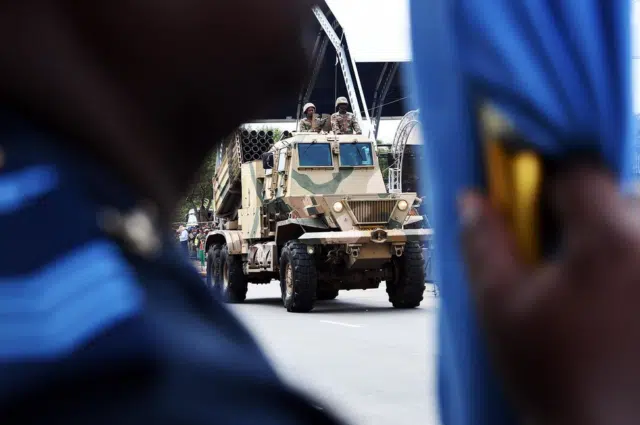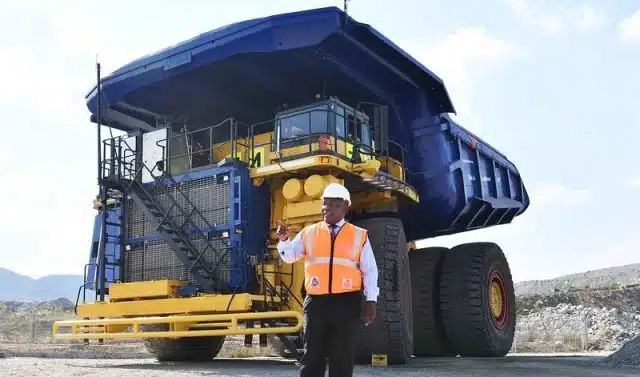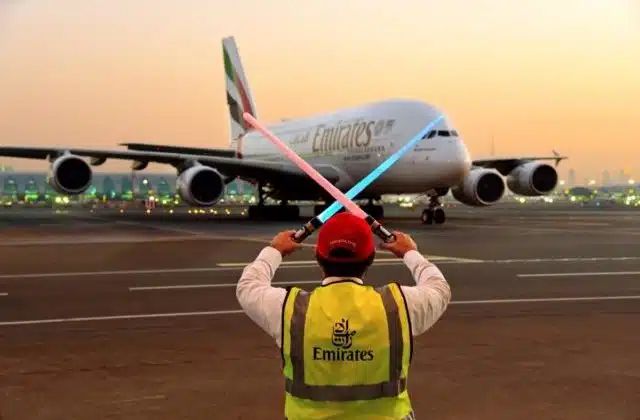
South Africa’s army can’t keep track of its assets and equipment
The Department of Defence and Military Veterans’ (DOD) management and administration are so poor that the Auditor General of South Africa (AGSA) is unable to confirm the existence or placement of some of its moveable assets.
Moveable assets refer to the stock of equipment owned or leased by the government, such as office equipment, vehicles and other moveable equipment.
Presenting its 2021/22 findings to the portfolio committee on defence and military veterans this week, the office of the AGSA flagged the department with rampant irregular expenditure due to non-compliance with procurement legislation.
The DOD’s Internal Audit Division (IAD) was tasked to assist the department’s finance division in updating irregular expenditure issues. However, due to capacity challenges, the IAD managed to provide assistance only to 11 out of 73 procurement centres under the DOD, it said.
The audit outcomes presented by the AG also highlighted the poor state in which the department manages its assets, saying it could not verify the existence of some of the movable assets. Furthermore, the management of the department could not indicate where these assets were located.
The AG also informed the committee that its findings were that the total cost of project Thusano – a cooperation agreement between the Cuban and South African military – is considered to be an irregular expenditure, and therefore all future expenditures on the project will therefore automatically become irregular.
The project carries a reported cost of R3 billion, adding to the piles of other irregular expenditures accrued by the department. The full scope of such spending at the department is unknown due to the severe lack of administrative capacity, the office of the AG said. It has tracked R15.36 billion in irregular expenditure since 2018.
Defence minister Thandi Modise, who led the delegation that appeared before the committee, concurred with the committee that the DOD needs to “pull up its socks” with issues of compliance in the department.
The latest audit report exacerbates findings from a previous report that leaked to the public in August 2022, showing that leadership at the department did not review the department’s compliance with supply chain management laws, nor did it take any of the recommended actions in the majority of investigations into the department’s failures.
This included hundreds of cases of alleged misconduct, fraud and infringements that have still not been completed; irregular expenditure of R6.1 billion that has not been investigated; and fruitless and wasteful expenditure of R8.5 billion has not been investigated.
Modise presented her departmental budget vote in May 2022, where she described the situation within the department as dire – expressing alarm at the number of qualified audits the department was getting.
Former defence and military veterans minister Nosiviwe Mapisa-Nqakula warned in 2021 that South Africa is at risk of losing its state-owned defence industrial base and the ability to repair, maintain and overhaul most of its defence systems.
Parliament’s Joint Standing Committee on Defence (JSCD) and the Portfolio Committee on Defence and Military Veterans (PCODMV) have previously highlighted issues plaguing the sector, including an ageing air force fleet and dilapidated infrastructure and equipment.
In August, data and information uncovered by Rapport in August pointed to several SANDF bases being in dire straits, unable to afford fuel for vehicles, and a fleet of aircraft in desperate need of repair.
According to the report, 75% of the air force has been grounded due to a lack of spare parts and fuel, with service contracts expiring and not being renewed. Insiders at the airbases reported having no more vehicles to “cannibalise” for spare parts, citing a lack of budget.
Read: South Africa’s army can’t afford parts or petrol for vehicles: report



